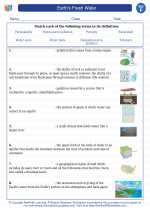Pressure
Pressure is a force exerted over an area. It is the measure of how much force is acting on a given area. The formula for pressure is:
Pressure = Force / Area
Units of Pressure
The standard unit of pressure is the Pascal (Pa), which is equal to one Newton per square meter (N/m2). Other common units of pressure include atmospheres (atm), millimeters of mercury (mmHg), and pounds per square inch (psi).
Factors Affecting Pressure
The pressure of a gas is affected by its temperature, volume, and the number of gas molecules present. As the temperature and/or volume of a gas increase, the pressure also increases. This relationship is described by the ideal gas law:
Pressure x Volume = Number of moles x Gas constant x Temperature
Applications of Pressure
Pressure is involved in various natural phenomena and practical applications, such as weather systems, scuba diving, hydraulics, and flight. Understanding pressure is crucial in engineering, physics, and environmental science.
Study Guide
- Define pressure and explain its formula.
- Describe the units of pressure and their conversions.
- Explain the factors that affect the pressure of a gas.
- Provide examples of how pressure is applied in real-life situations.
- Discuss the significance of understanding pressure in different scientific fields.
Would you like to ask anything else related to this topic?
.◂Science Worksheets and Study Guides Sixth Grade. Earth's Fresh Water
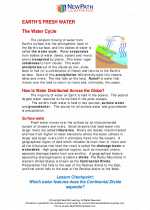
 Worksheet/Answer key
Worksheet/Answer key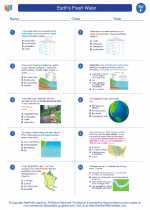
 Worksheet/Answer key
Worksheet/Answer key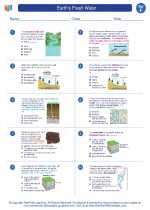
 Worksheet/Answer key
Worksheet/Answer key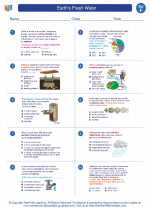
 Vocabulary/Answer key
Vocabulary/Answer key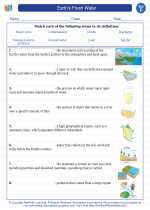
 Vocabulary/Answer key
Vocabulary/Answer key